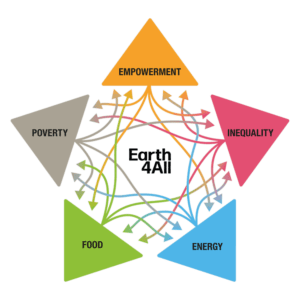
The problem
The solution
While the gravity of the climate crisis continues to escalate, low-income countries lack the necessary financial resources to implement effective climate action and pursue their human development goals. For the first time in a generation, the number of people living in extreme poverty is increasing. What’s more, low-income countries bear the brunt of the adverse impacts of climate change, when they are the ones least responsible for causing it. These countries urgently require financial support to build resilience, lift their populations out of poverty and fund the energy transition.
The current global financial system, operating on outdated and unfair rules, is failing to address the magnitude of the current ecological and social crises. Without adequate financial support, low-income countries will struggle to implement climate solutions, leaving them more exposed to the adverse impacts of climate change and undermining the world’s ability to limit global warming to safe levels.
World governments must take decisive action to upgrade the global financial system and support low-income countries to tackle climate change and rising poverty.
This includes cancelling low-income countries’ debt, reforming the governance of international institutions like the IMF and the WB, using mechanisms like SDRs and taxes to boost finance, and increasing international cooperation. By doing so, global financial institutions can provide the necessary resources for low-income countries to play their part in tackling the climate crisis, protect vulnerable communities, and safeguard the planet for future generations.
Unlocking trillions of dollars in financing is crucial to enable poorer countries to transition to clean energy sources, adapt to the changing climate and build resilience to shocks. Freeing up financial resources can also support poverty elimination, promote education, healthcare and reduce inequality.
To achieve wellbeing for all on a liveable planet, governments must reform the global financial system to unlock the trillions of dollars needed to confront today’s urgent challenges.
What you can do:
Sign our petition
Tweet your representative
Read the open letter
Why is upgrading the global financial system key to achieving an Earth4All?
Earth4All identifies five extraordinary turnarounds: ending poverty, addressing inequality, reaching gender equity, transitioning to clean energy and making food systems healthy for people and the planet. These turnarounds are the minimum requirements for our societies to build economies that support wellbeing for all and protect the environment.
Yet they can only be fully realised with the necessary transformative change in the financial system so that it is designed for people, planet and prosperity.

